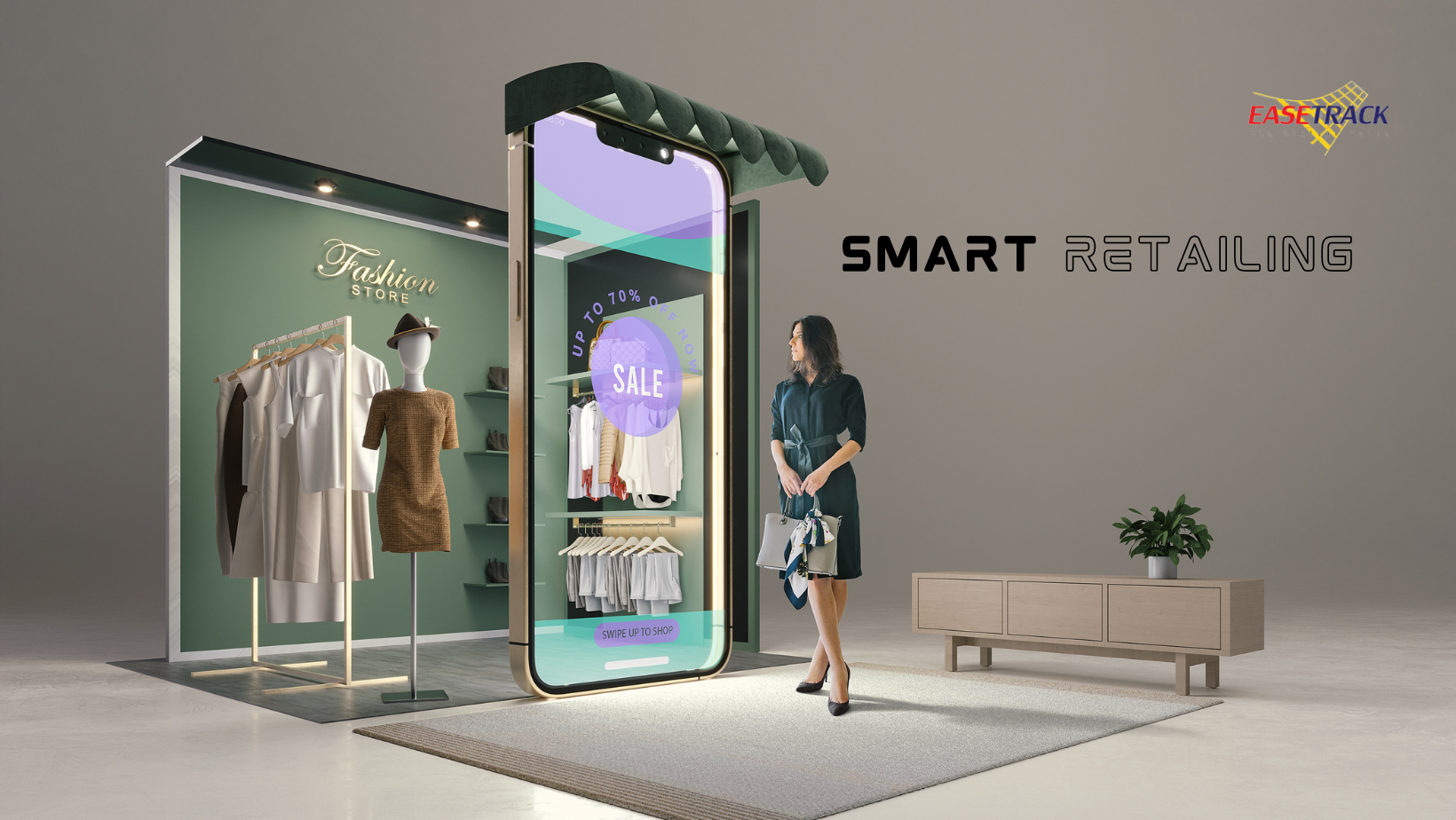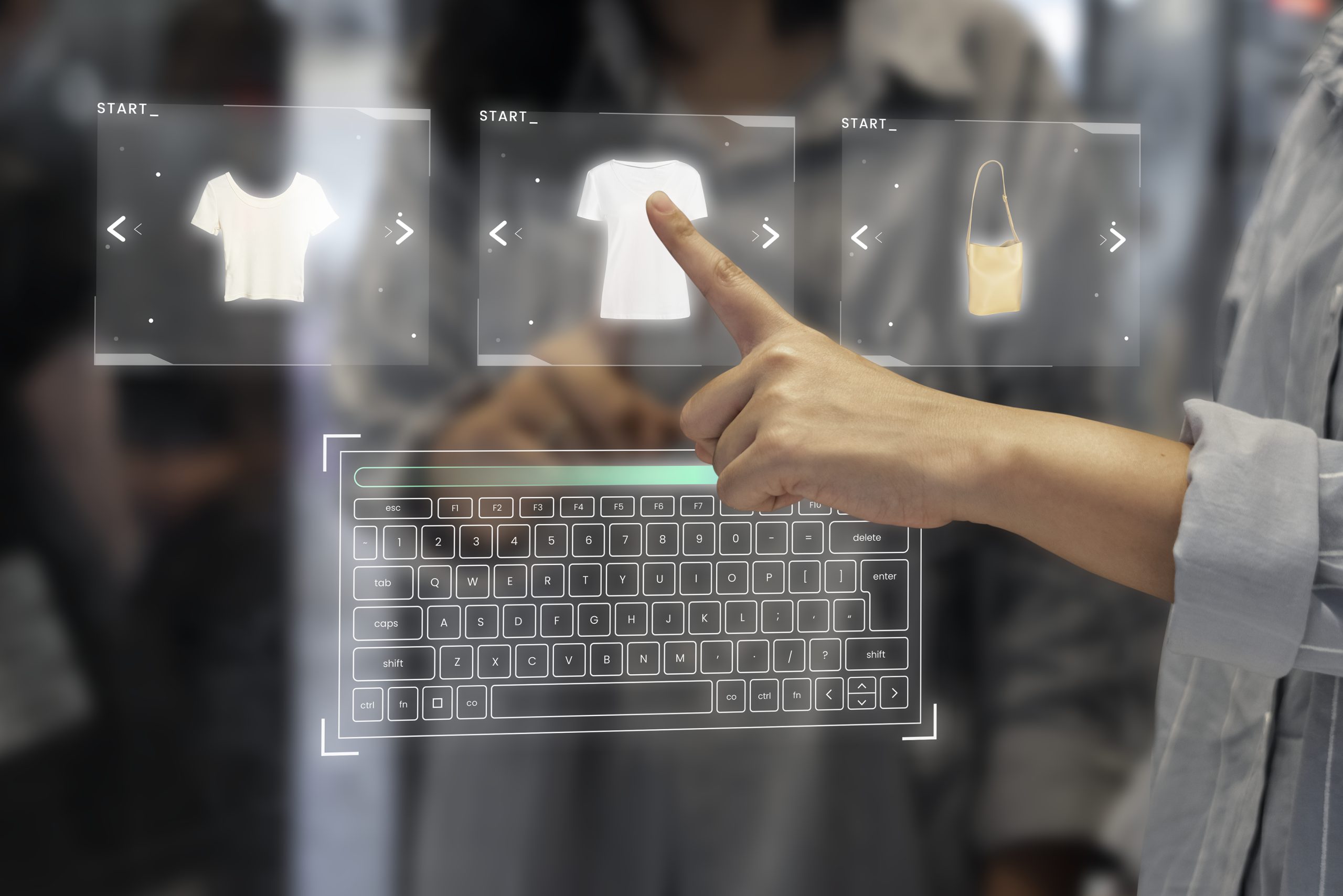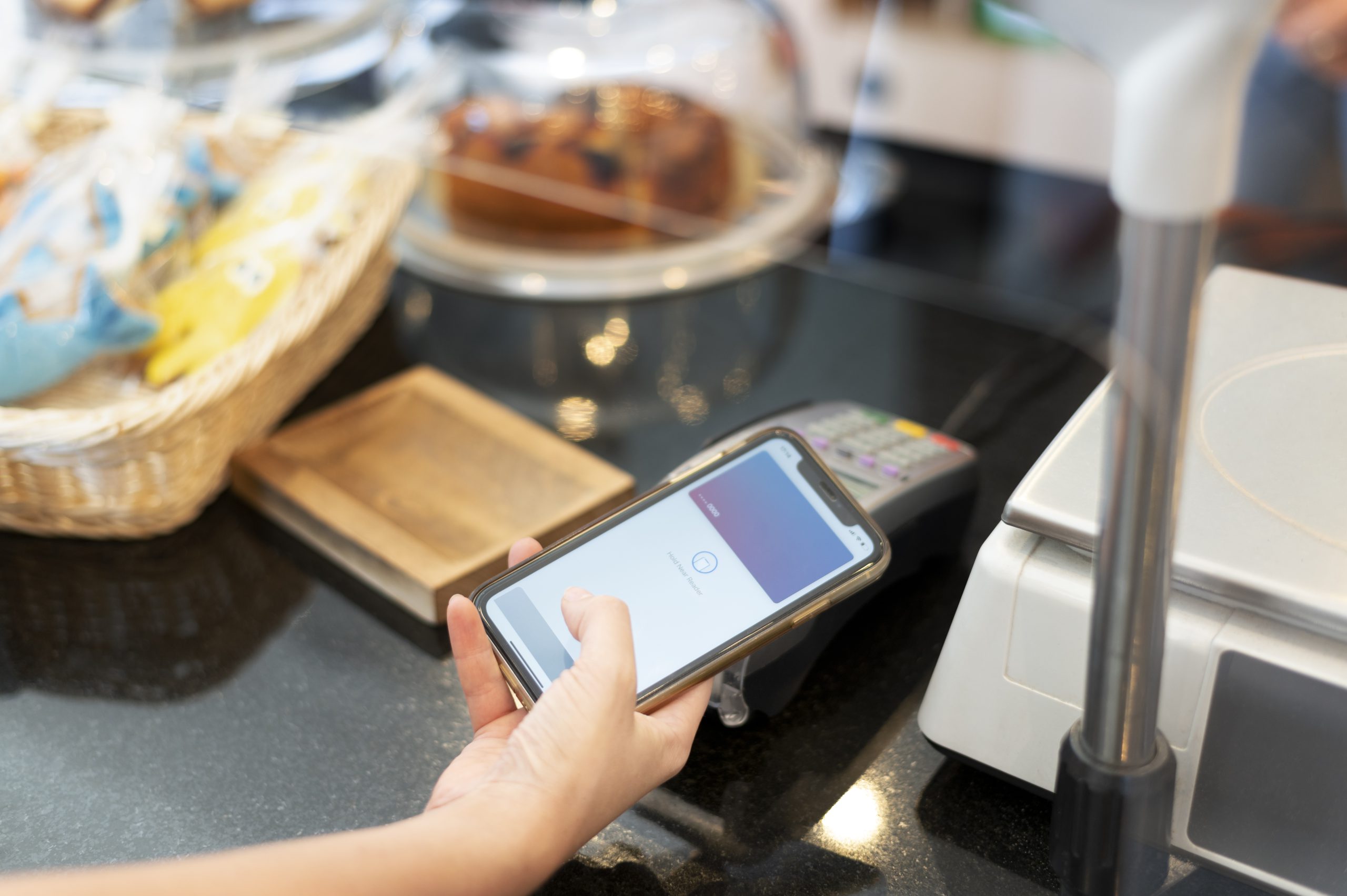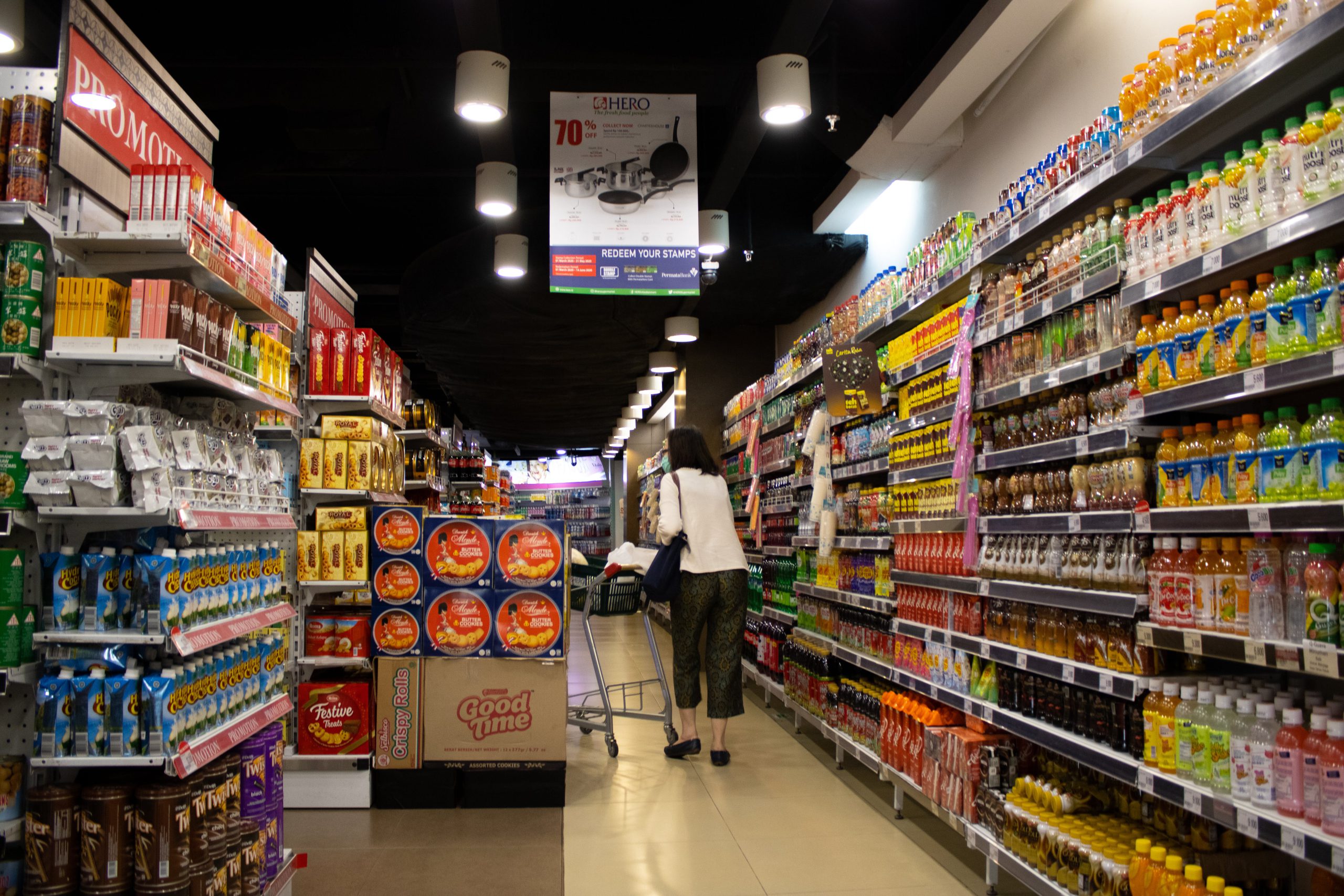
Can you imagine today’s world without online shopping? Probably not, as most consumers can’t either. Increasingly, traditional brick-and-mortar stores must undergo digital transformation to meet customer expectations, retain their loyalty, and maintain a modern brand image. As companies shift towards digital channels, they need to develop appropriate strategies that blend customer relationships with a unique digital experience. With a growing array of options, customers are becoming discerning about where they shop. They actively seek the best deals, and as soon as a better option arises elsewhere, brand loyalty can quickly vanish.
Smart retailing provides brands with the ability to track customer feedback and implement positive changes to maintain consumer interest. Smart Retail ensures an enjoyable shopping experience by offering the best products and prices. Considering studies predicting a decline in brick-and-mortar stores over the next few decades, coupled with advancements in modern technologies, smart retail may indeed shape the future of retail overall.
What is Smart Retailing?
Smart retailing is an approach that regards technologies as factors enabling innovation and enhancing the quality of life for consumers. It provides them with a shopping experience that is better, faster, safer, and smarter. Therefore, the term encompasses all the smart technologies facilitating this. The concept of smart retail extends beyond completing a purchase; it also aims to ensure that customers undergo a personalized experience, encouraging them to return to the shop in the future. To achieve this, it’s crucial to focus on the customer journey, encompassing the entire path from the initial encounter with the store to leaving after the purchase. Smart retail improves each element of this journey, creating a personalized, comprehensive, and satisfying customer experience that encourages repeat visits to your store.

What are Smart Retail’s benefits?
The smart retail approach is undoubtedly advantageous for businesses wishing to retain customers. The main benefits are:
-
- Superior Quality – given the smart retailer’s ability to detect and solve potential problems before they develop, retailers have a chance to avoid errors and quality drops in any sector. As a result, the quality of the products of the retailer using such modern retail technologies will be higher than those produced in a less efficient, traditional way;
-
- Better customer experience – the use of, for example, the Internet of Things in smart retail helps sellers build a better user experience, generating insight into customer data and at the same time opening up the possibility of using this data. Retailer IoT applications can synthesize data about consumers, enabling them to better predict customer behavior;
-
- Efficiency – the smart retail market has enormous self-adaptability that results in high efficiency. Such fully functional, effective retail has constant access to ever-changing data. Smart retail technologies will be able to analyze data and possibly correct them so that the sales and adaptation process, as well as its results, are as effective as possible;
-
- Sustainable production – a variety of disruptions can occur in traditional retail locations. All processes that accompany intelligent retailing eliminate the possibility of human error. Such automation can increase safety and ensure the durability of the result;
-
- More convenient inventory management – IoT in smart retail can also solve problems related to inventory management. By automating inventory tracking, you will avoid running out of surplus and consequently losing huge sums of money. By adopting intelligent inventory management solutions based on sensors, RFID tags, video monitoring, and digital price tags, companies can streamline their purchasing planning. The system will monitor the condition of the products and, in the event of their decline, will offer to re-order the appropriate quantity.

Features of Smart technologies for retailing
The introduction of intelligent processes to retail has changed the sales industry enormously. Smart retail turned out to be a response to some problems specific to the industry, all thanks to its unique features.
-
- Transparency – smart retail ensures data transparency throughout the entire supply chain. Information is readily available at all levels, making both human resource management simpler and automated systems able to function optimally. Modern technologies used in smart retail will be able to record trends, detect errors before they appear or better adapt the offer to the user;
-
- Decentralization – smart retail requires little manual interference and can optimize and adjust its processes through automation. This gives reliability, efficiency, and confidence that decisions are made without top-down supervision;
-
- Optimization – with its decentralized and transparent nature, smart retail reaches the appropriate level of optimization to become more comprehensive and respond to the needs of the market. This makes it easier for retailers to seamlessly adapt to changes, and to take action against abnormalities before they become a threat to the larger retail infrastructure.

Examples of a real-life application of Smart Retail Technology
The use of intelligent solutions and modern technologies has a positive effect on many areas in retail. Examples of applications already implemented or under development for adoption shortly are numerous, here are some of them.
AI creating personalized customer experiences
Sales giant Amazon implements artificial intelligence to power its recommendation engine by analyzing consumers based on their purchase history, purchase path, social media activity and product lifetime. The project is based on research on consumer behavior, which shows that consumers are more likely to view products that are recommended based on information provided to the brand.
Mobile applications for smart retail
In a society that is almost glued to smartphones, mobile applications can increase customer retention and loyalty. They provide sales support through the possibility of virtual presentation of products, and services, you can build a stronger relationship between customers and the brand and select personalized offers for them. Bringing mobile applications to both customers and store employees new sales and service tools is a key solution to promoting a better consumer experience and increasing shopping satisfaction.
Smart mobile wallet
According to research, in the future, mobile payments based on AI will eventually replace traditional forms of transactions. By ensuring seamless purchases and payments, retailers’ applications will be able to integrate with customers’ digital wallets. It will increase the number of transactions, as well. It will also reduce retailers’ obligations to dealers as these instances do not provide traders with payment details for purchases made online or via a mobile phone.
Better customer service
The use of AI and Machine Learning will improve customer service thanks to chatbots. Real-time responding chatbots can help you solve customer problems, find the right product for them or advise them while learning about their personal preferences. This contributes to better customer relationship building and service, as well as efficiency.
Summary
The digital transformation of all industries is a sign of our times. The changes that we will see in the stores of the future will revolutionize the way consumers approach shopping. It is already noticeable that their requirements are growing, which must be noted by retailers who want to stay in the industry. Smart retail is a direction to turn towards. It is a profitable approach that opens the door to countless opportunities for both parties in the sales process. It is worth keeping an eye on this trend and observing the changes it introduces, to not be left behind with your business.
Easetrack incorporates RFID technology and a WMS system that can be deployed in retail stores. It is prepared to support entrepreneurs in the retail industry to fully transition to Smart Retail, aiding in the efficient management of products. Easetrack is also ready to provide advice and encourage Thai retail entrepreneurs to make the shift to Smart Retail.
ขอบคุณที่มา : binarapps
รูปภาพ : freepik
